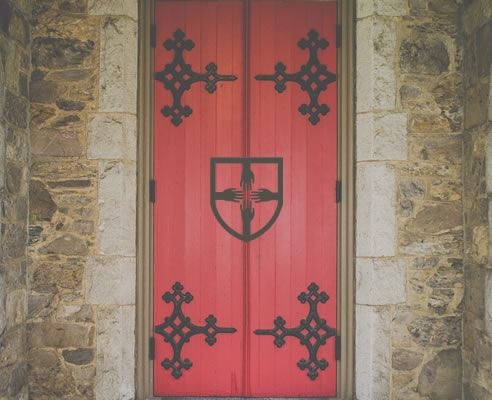
The Word became flesh and blood, and moved into the neighborhood. We saw the glory with our own eyes, the one-of-a-kind glory, like Father, like Son, Generous inside and out, true from start to finish.
John 1:14 (The Message)
This past weekend I began to go through the remains of my recently closed-out storage room. In the background of that task, I decided to listen to the audiobook, The Universal Christ, by Father Richard Rohr. I thought I would be in an excellent place to fill my heart with this powerful truth as I emptied the boxes from my past.
As I unpacked my life, so many memories rushed through my brain and emotions flooded my heart. Many of these boxes held the items of a life I had not visited in over 10 years. They included both the remnants of my career as an addicted evangelical pastor and a man who lived in denial of his sexual identity. The boxes contained the ghosts of the past. I was both Scrooge and Marley, rattling the chains that once bound me.
I also remembered the joys of that life. The glimpse of love in the photos of my children ’s eyes. Rediscovering the blessing of grandparents who created a safe space for a kid raised in the home of an alcoholic. I surprisingly discovered an old daily meditation book based on the liturgical calendar and the writings of the early church fathers. Though I had no memory of purchasing this, it hinted at the hunger for rituals and traditions my heart desired.
Like life, the experience was bitter-sweet. I felt these memories, grieved over them, and saw them differently than when they occurred. As these feelings culminated, I heard Rohr discussing the incarnation of Christ. He spoke about three incarnations. First, the coming the Christ within creation. Second, the incarnation of Jesus within Mary’s womb. Finally, he described a time that is coming when injustice and suffering are abolished at the final incarnation. Rohr then made a statement that blew my mind. He stated that Jesus came as the incarnate Word, the “logos,” not to make us pious. He incarnated to show us how to be human.
The following day, our Rector described the advent season as reflection, repentance, reconciliation, and renewal. All my thoughts and feelings from the day before suddenly synced up with the sermon about Advent. Advent, and my recovery journey, is always best experienced as a continuum. Advent does call us to prepare and to look forward. But we cannot do so without an awareness that Christ is presently in us, with us, and through us.
Recovery also exists along a continuum. The new truth I realized this weekend is that while recovery is spiritual, the most profoundly spiritual act in recovery is to be utterly human. Recovery is based upon reflection (steps one - five), repentance (steps six and seven), reconciliation (steps eight and nine), and renewal (steps ten - twelve). All processes we celebrate in the Advent season! Before my recovery journey began ten years ago, there was the indwelling of a Higher Power, the Christ-Spirit. The same Christ-Spirit who indwells my suffering and addiction. The Christ-spirit who indwells the blessings of family and friends. The Christ-Spirit who indwells the heartbreaking humiliation of hitting bottom. The Christ-Spirit who indwells the pink cloud of new sobriety, The Christ-Spirit who indwells the journey through lapse and relapse. The Christ-Spirit who indwells the addict who still struggles.
Suppose recovery is about the manifestation of Christ in each moment, relationship, and experience. Could it be that addiction, then, is about the absence of a power greater than myself in each of those situations? Is it possible that addiction concerns pride and self-will run riot, creating a living hell for the suffering addict? Addiction promises us that we can be like God, yet delivers a bait and switch as old as the Garden. It is the antithesis of indwelling - it is the abandoning.
In this Advent season, I invite you to join me as I attempt to reconnect with the call to incarnation. Allow the presence of Christ to seep deep into your past failures and successes. Acknowledge that the Spirit of your Higher Power resides in your present circumstances and shortcomings. Embrace the future grace of recovery as you surrender to, and work for, the promise of emotional and physical sobriety. In short, let this season be one where we are reminded that the fulfillment of recovery and the Advent season requires both Jesus and us to be human. Let the logos “move into the neighborhood” of our humanity.
After all, He lives there anyway.
Shane Montgomery
**The Message (MSG), Copyright © 1993, 2002, 2018 by Eugene H. Peterson
 In the early days of the Church, when the front door of the parish was painted red it was said to signify sanctuary – that the ground beyond these doors was holy, and anyone who entered through them was safe from harm.
In the early days of the Church, when the front door of the parish was painted red it was said to signify sanctuary – that the ground beyond these doors was holy, and anyone who entered through them was safe from harm.